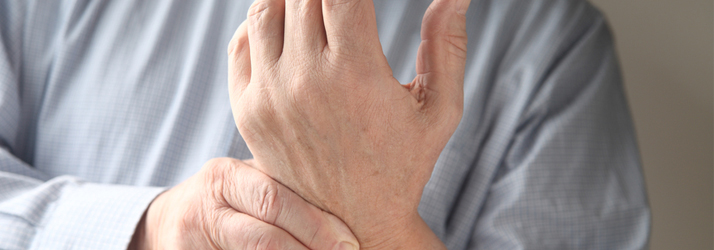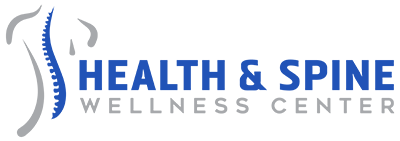What Treatments In Belleville Relieve
The Symptoms Of This Ailment?

The term arthritis encompasses all those rheumatic diseases in which the process causes joint inflammation. This involves joint symptoms such as swelling, redness, increased skin temperature, pain, and limitation in the affected joints, as well as other general signs such as fever, tiredness, loss of appetite, or weight loss.
There are multiple causes of arthritis in Belleville: infectious; by deposits of crystals in the joint (such as uric acid that causes gout); genetically based; related to some diseases; and others, such as rheumatoid arthritis, whose origin is determined by an autoimmune disorder.
What is Rheumatoid arthritis?
Rheumatoid arthritis is, therefore, an autoimmune rheumatic disease, of unknown cause, that inflames the joints and the tissues that surround them, although it can also affect other parts of the body, such as the skin, eyes, blood vessels, the heart, and lungs, usually when the pathology is already established.
It is relatively frequent and, in general, causes symptoms such as pain, deformity, swelling, and stiffness - difficulties in moving.
It is a chronic disorder, with a low frequency of spontaneous healing, which often alternates periods in which the symptoms subside with others in which they worsen. It can last for many years and deteriorate the quality of life of those who suffer from it, although there are treatments that allow the disease to be kept under control in most cases.
What causes rheumatoid arthritis in Belleville NJ?
The cause of arthritis is not well understood, but it is known to be an autoimmune disorder; the immune system attacks the body's cells and tissues.
Although, as we mentioned, the exact reason why this happens is unknown, there are risk factors that increase the probability of developing this disease. They can be of two types:
- Genetic factors: it appears that certain genes are linked to the origin of rheumatoid arthritis. Therefore, having relatives - parents, siblings, grandparents ... - who have suffered or suffer from this pathology increases the risk of suffering from it. But we must know that these factors predispose, but do not determine the appearance of the disease.
- Non-genetic factors: they can be very diverse, from suffering variations in female hormones -estrogens-, to having suffered infections caused by certain viruses or bacteria -although this link has not been clearly established-, smoking or an excess of stress or obesity, among others.
What are your symptoms?
The most frequently affected joints are the following:
- Hands and feet.
- Ankles and knees.
- Elbows and wrists.
- Hips
- Laryngeal area.
How is arthritis treated?
Although arthritis today has no cure, very effective treatments allow the symptoms to be controlled. It is a wide variety of drugs, which are often used in combination and for long periods of time. In this sense, there are several possibilities:
- Non-steroidal anti-inflammatory drugs (NSAIDs) such as ibuprofen or naproxen: reduce pain, inflammation, and stiffness of the joints, but do not prevent their destruction or stop the disease. They are usually used in the initial stages or during periods of exacerbation.
- Glucocorticoids: they are derivatives of cortisone, which can be used in the initial stages of arthritis or in periods of worsening, although for the shortest possible time, due to their side effects.
- Disease-modifying antirheumatic drugs ("traditional" DMARDs): they constitute the basis of the treatment of rheumatoid arthritis, since, in addition to alleviating symptoms, they slow the progression of the lesions, slow down the deformation and destruction of the joint, because they interrupt the inflammatory activity that causes them. Methotrexate is the most widely used.
- Biological drugs or DMARDs are drugs designed with molecular technology, which block the different substances that intervene in the inflammatory processes of arthritis and in the destruction of cartilage. They are very effective and capable of stopping the damage caused by the disease in the joints.
- Other drugs: sometimes, analgesics such as paracetamol, which helps relieve pain and fever, muscle relaxants, anxiolytics, or antidepressants may be necessary. Also, gastric protectors may be necessary to prevent or mitigate the side effects that many of the arthritis medications cause in the digestive tract.
- Treatment of the joints: if they continue to be inflamed, they can be treated with infiltrations or, if the joint is severely damaged, with special orthopedic material. Physiotherapy (application of heat, electrical stimulation, or local cold) can also be used as a compliment.
- Surgery: if the disease is very advanced and the joints are very deteriorated, orthopedic or restorative surgery may be necessary. Arthroscopy - in which a tube connected to a camera is inserted into the joint - and synovectomy - removal of the joint lining - are some of the most common.
Monday
9:30am - 1:00pm
2:30pm - 7:00pm
Tuesday
Closed
Wednesday
9:30am - 1:00pm
2:30pm - 7:00pm
Thursday
9:30am - 1:00pm
2:30pm - 7:00pm
Friday
9:30am - 1:00pm
2:30pm - 7:00pm
Saturday & Sunday
Closed
Health & Spine Wellness Center
544 Washington Avenue
Belleville, NJ 07109

